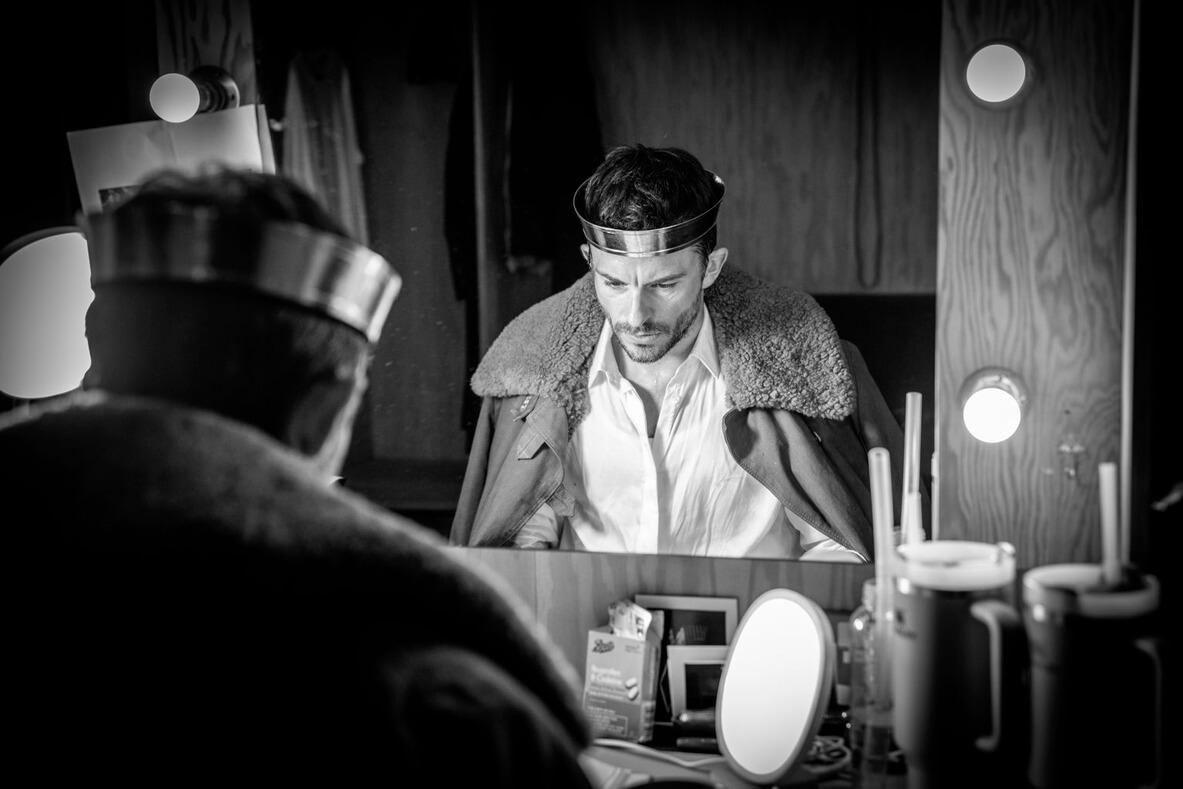On Robert Jones’ calm-inducing pastoral stage, a path meanders past the cottage garden and up to a cornfield before disappearing out of sight. Down centre, the kitchen with its faltering radio, serves as the centrepiece to the set where discussions, dancing and arguments punctuate the peaceful rural idyll in Josie Rourke’s cocooning production ranged across the immense Olivier stage.
In truth, the play has little of note to say and few dramatic statements to make, yet the familial interactions and the personalities they illuminate are utterly captivating. Each character is fully formed with their own foibles and idiosyncrasies. Chris (Alison Oliver) the young unmarried mother is still in love with the boy’s father Gerry (Tom Riley) who makes occasional visits, bringing a light but fleeting frivolousness to their lives. Agnes (Louisa Harland) also clearly harboured feelings for Gerry creating undertones of unspoken tension. Meanwhile Maggie (Siobhán McSweeney) anchors everyone and neutralises frictions with her playful jocularity and riddles, most especially acting as a foil to Kate’s (Justine Mitchell) constant lecturing and devout upbraiding of her wayward sisters. Finally, perpetually adorned with wellies Rose (Bláithin Gabhann), casts them off in the hope of finding some kindness and companionship when all would attempt to dissuade her of such an aspiration.
The title of the piece is derived from a pagan Irish festival in honour of god Lugh in thanks for his delivery of a good harvest and bilberries growing in wild hedgerows around the same time each year. From this production, it is quite easy to believe that the events and simple pleasures conveyed from the summer of 1936 could go on forever, but the narration reveals the mixed fortunes of each character as the play draws gently to a close.

 Siobhán McSweeney (Maggie), Bláithín Mac Gabhann (Rose), Louisa Harland (Agnes), Justine Mitchell (Kate) & Alison Oliver (Chris) in Dancing at Lughnasa at the National Theatre. Photo by Johan Persson
Siobhán McSweeney (Maggie), Bláithín Mac Gabhann (Rose), Louisa Harland (Agnes), Justine Mitchell (Kate) & Alison Oliver (Chris) in Dancing at Lughnasa at the National Theatre. Photo by Johan Persson

